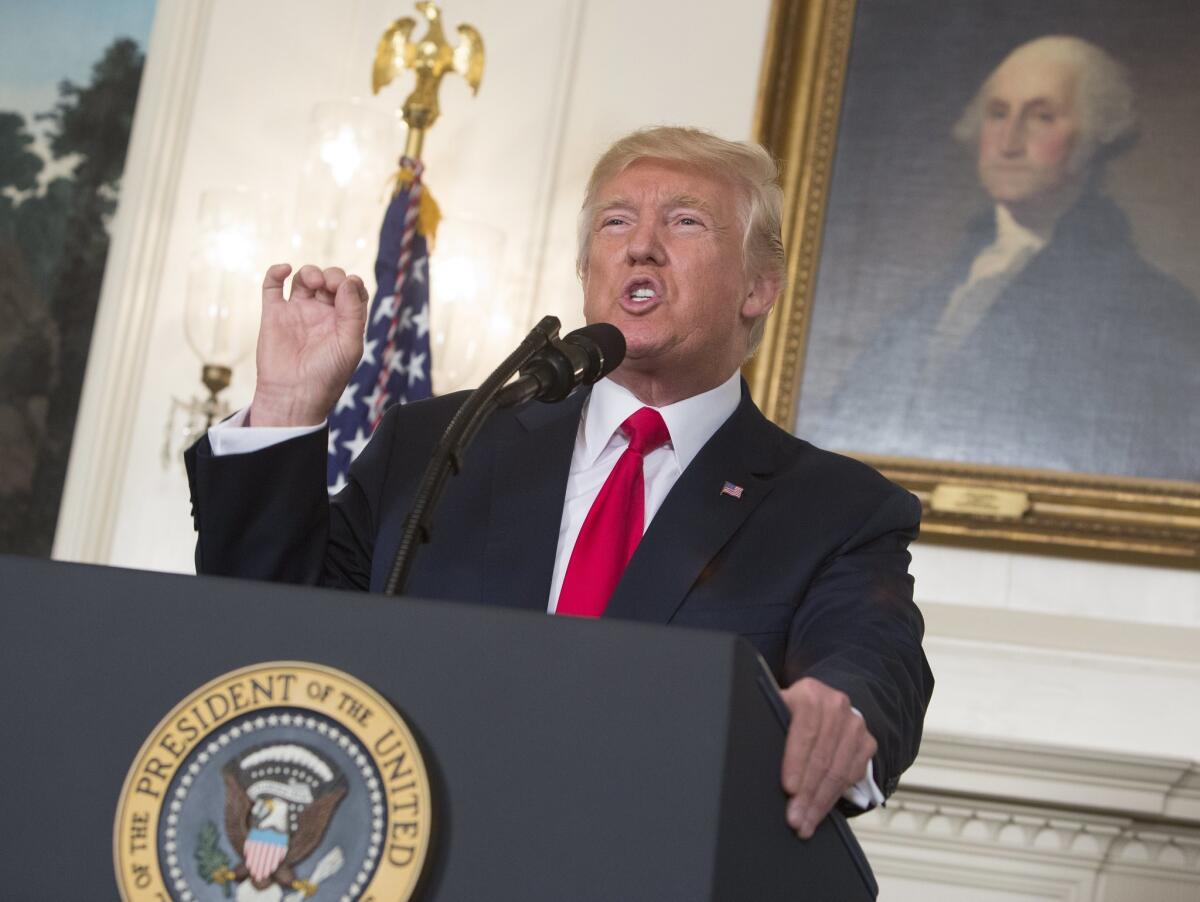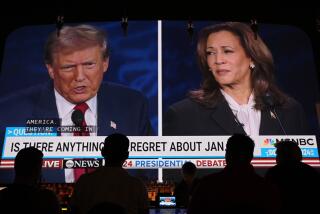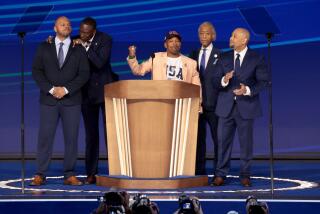Editorial: Trump’s first response to Charlottesville was tepid and mealy mouthed. His second was too late

It took him long enough — in fact, too long. Two days after a protest in Charlottesville, Va., dissolved into violence, President Trump — who initially seemed to see no difference between the racists and Nazis who had called the march and the counterdemonstrators opposing them — finally denounced the hard-right for what it is.
Unfortunately, the time for that statement was Saturday afternoon when the rest of the civilized world spoke up. Instead, on that day, Trump delivered a tepid, mealy mouthed response so inadequate that it set off an uproar around the nation. White House officials and Atty. Gen Jeff Sessions and even Vice President Mike Pence tried to cover for him, but the tsunami of public opinion was already underway.
The fact is that Trump’s shocking reluctance to speak out against racism is part of a pattern. During the campaign, Trump initially refused to repudiate the political support he had received from former Ku Klux Klan grand wizard David Duke, and lied when he said he “didn’t know anything about” Duke, an infamous espouser of white supremacist beliefs (who was also in Charlottesville on Saturday). Trump is quick to condemn acts of terrorism committed by Islamic extremists, but failed to note the bombing of a Minnesota mosque a week ago as worshippers were arriving. A Trump statement in January on International Holocaust Remembrance Day failed to mention the racism that made Jews overwhelmingly Hitler’s victims.
Trump’s reluctance to acknowledge the dark stain of racism among some of his supporters is compounded by his inability ever to acknowledge that he is wrong. Even his more forceful statement Monday, in which he finally said the obvious — that racism is “evil” and that the Klan, white supremacists and other hate groups are criminals and thugs — was prefaced by so much throat-clearing and self-congratulations that he seemed more concerned about appearing to admit failure to lead than to actually lead.
The nation has faced right-wing radicalism before, from the Silver Shirts and domestic Nazis of the 1930s to the third rise of the Klan in the 1960s to the emerging hate and militia movements of the 1980s and 1990s. But in those moments of internal crisis, the nation had reliable leaders in Washington capable of recognizing the evil and standing up to it. Trump, by his laggard actions and disinterest, doesn’t seem to know the cancer is there, or even that it is an illness.
Follow the Opinion section on Twitter @latimesopinion or Facebook
More to Read
A cure for the common opinion
Get thought-provoking perspectives with our weekly newsletter.
You may occasionally receive promotional content from the Los Angeles Times.










